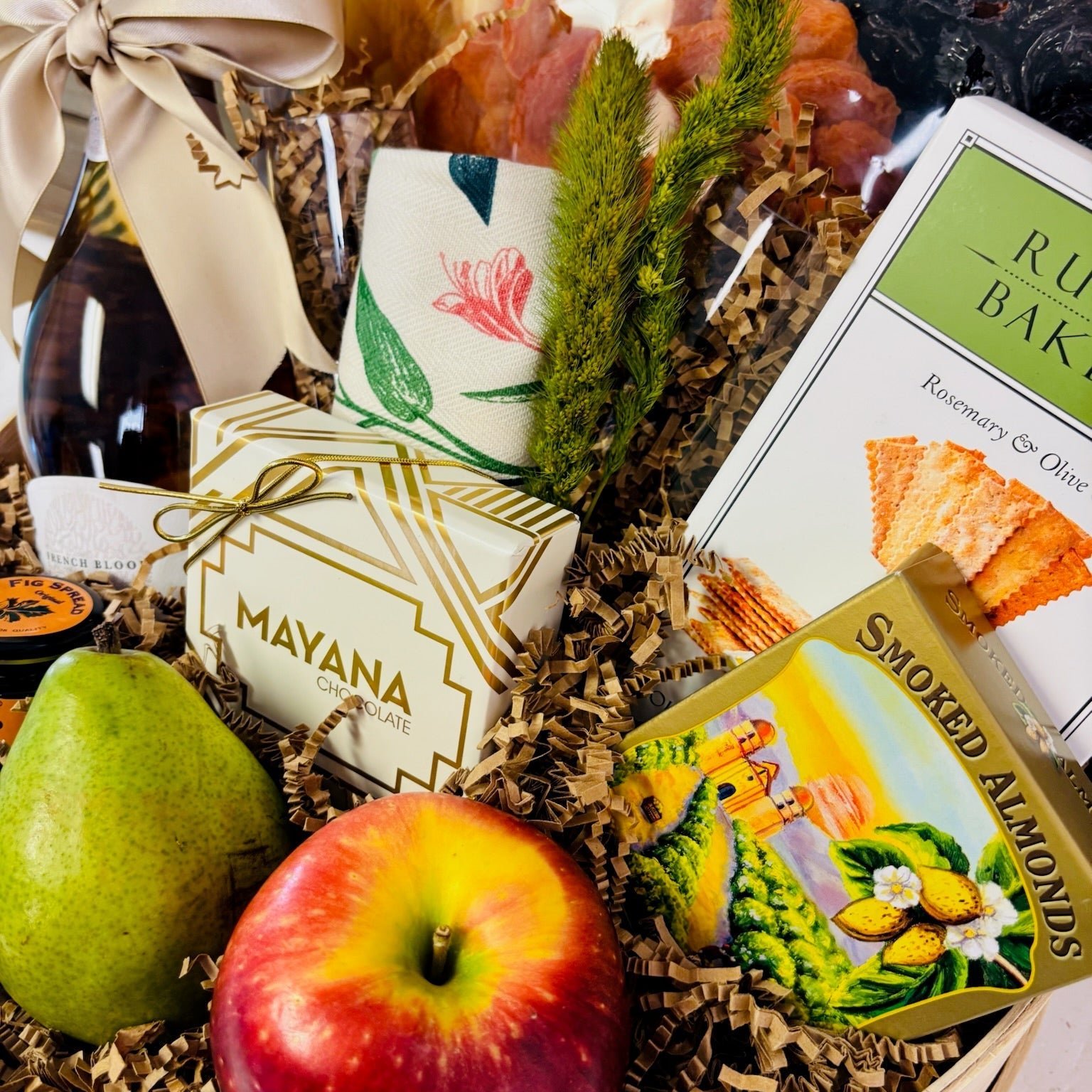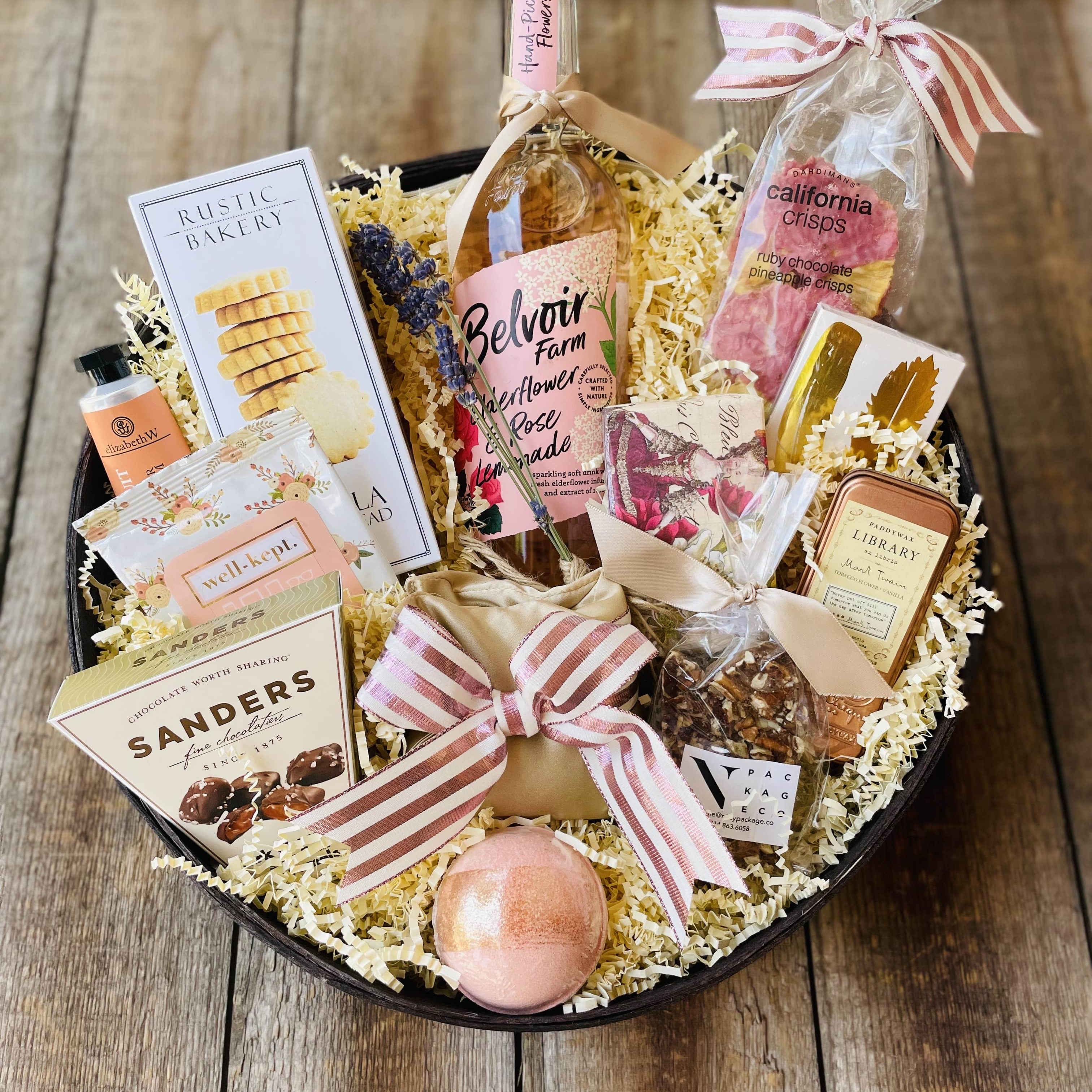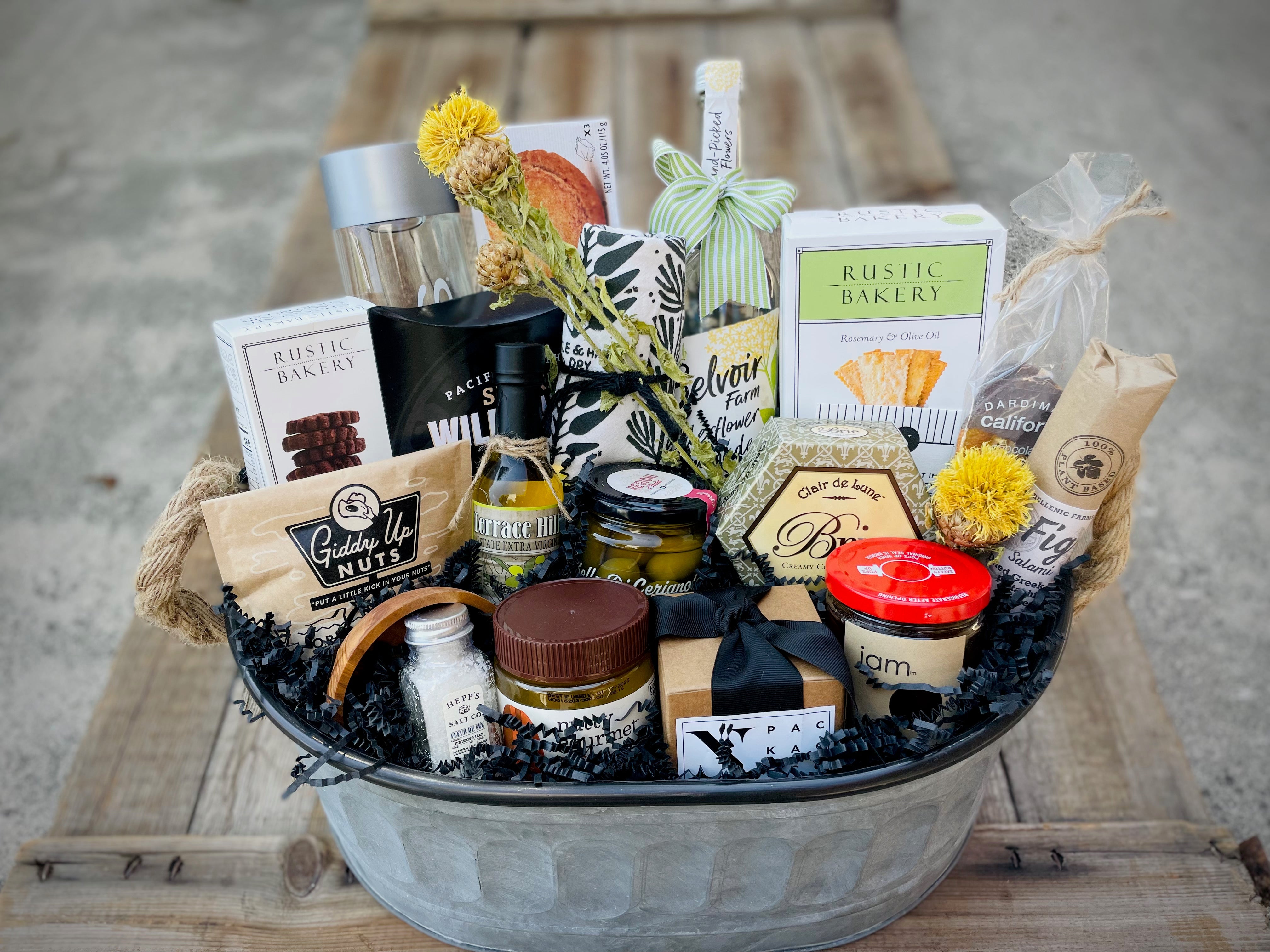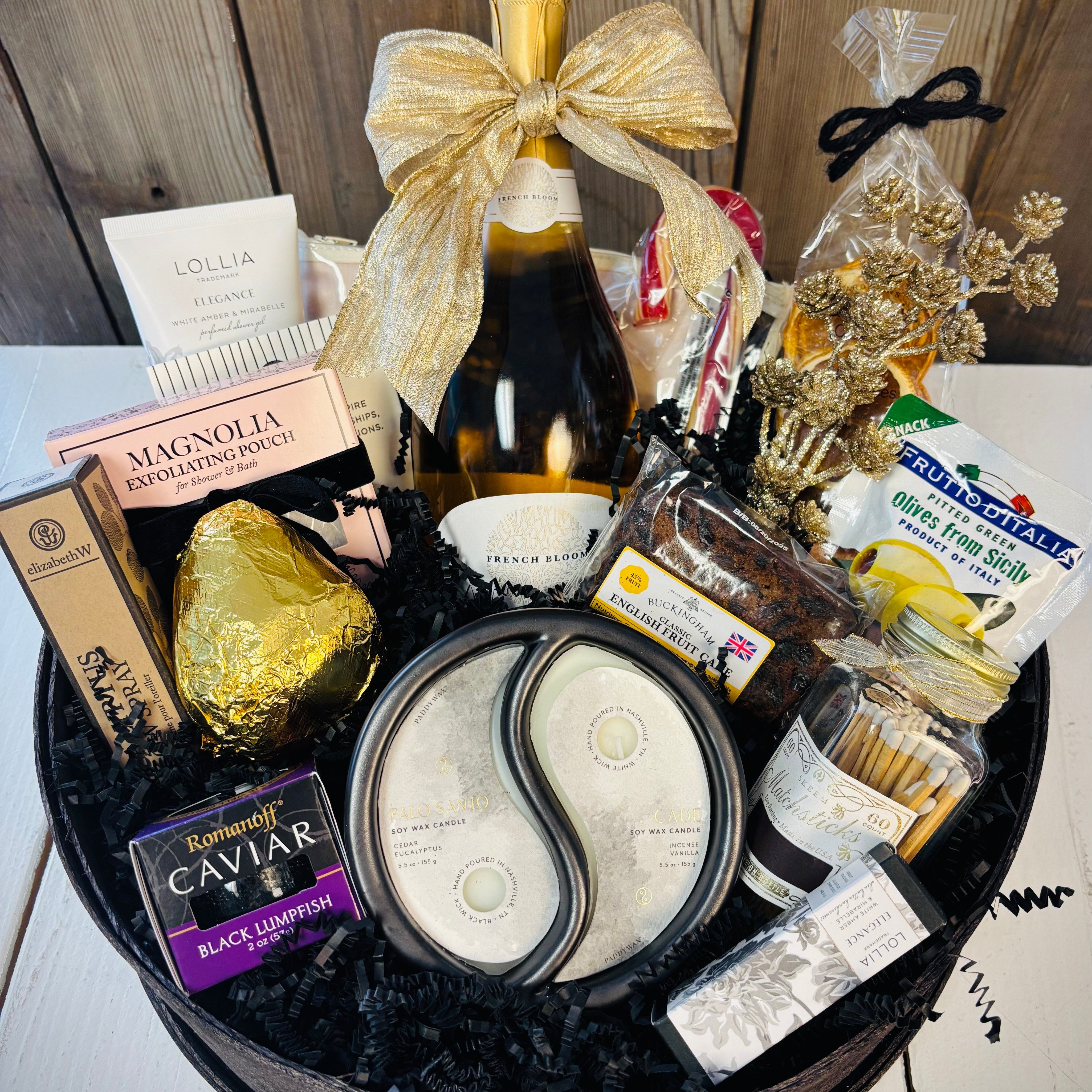Unwrapping Gifting Traditions: A World of Cultures in Every Basket

Gifting Across Cultures: How to Give Thoughtfully, Globally, and with Style!
At Nifty Package Co., we don’t do basic. We design statement gifts—the kind that make people feel seen, valued, and celebrated. That’s why understanding global gifting traditions isn’t just nice—it’s necessary. From Jewish holidays to Indian weddings, from Lunar New Year to Eid, gifting customs are rich with meaning. Whether you're sending a luxury gift basket to a client or curating something personal for a friend, here's how to do it with cultural sensitivity, respect, and a whole lot of style.
Jewish Gifting: Celebration Meets Meaning
Jewish culture loves a good gift, especially during holidays like Hanukkah and Purim. Hanukkah brings eight nights of joy—think small tokens like coins (gelt), games (dreidels), or tasty treats like latkes and donuts. Purim’s all about mishloach manot: baskets packed with food (hamantaschen cookies, fruits, wine) to share with friends. It’s practical, communal, and delicious. A sleek gift basket stuffed with kosher goodies? Perfect for keeping the tradition alive and tasty.
Some ideas are:
In Jewish culture, gifting often aligns with holidays, life milestones, and expressions of gratitude. Two key times stand out:
-
Hanukkah: Gift-giving happens over eight days. Items are usually practical, meaningful, or handmade. Think artisanal foods, candles, or symbolic objects.
- Purim: This is where gift baskets shine. Mishloach Manot—baskets filled with sweets, wine, and snacks—are a central tradition. These are gifted to friends, neighbors, and community members.
- Nifty Tip: Keep it kosher, especially with food. Clarity and sensitivity are key.
Indian Gifting: Bold, Bright, and Personal
In India, gifting is loud and proud—Diwali, weddings, or even housewarmings call for it. Sweets like ladoos and barfis are king, often paired with dry fruits, silver coins, or shiny décor like diyas (lamps). Presentation matters: vibrant boxes or trays wrapped in reds and golds scream festivity. Gift baskets here could go big—pile in spiced snacks, colorful sweets, and a touch of bling. It’s a sensory overload, and Indians wouldn’t have it any other way.
Diwali: Known as the Festival of Lights, it’s prime time for gift exchanges. Sweets, dried fruits, and decorative items are popular.
Asian Gifting: Respect Wrapped in Ritual
“Asian” spans a lot—China, Japan, Korea, and more—but respect and symbolism tie it together. For Chinese New Year, red envelopes with cash (hongbao) rule, but fruit baskets (oranges for luck, apples for peace) are a close second. Japan’s Omiyage tradition means bringing back regional snacks or crafts after a trip—think matcha treats or sake. Koreans gift practical stuff like ginseng or premium meats for Chuseok. A gift basket loaded with teas, fruits, or luxe snacks nods to tradition while keeping it classy and useful. Weddings: Gifts for the couple are often cash in decorative envelopes or practical household items.
East and Southeast Asian Cultures: Respectful and Ritualized
Gift-giving in many Asian cultures, including Chinese, Japanese, and Korean, follows strict etiquette.
-
China: Gifts are often exchanged during New Year, weddings, and business meetings. Avoid clocks, sharp objects, or anything associated with bad luck.
-
Japan: Presentation is everything. The wrapping should be neat, and the gesture should feel modest.
-
Korea: Gifts often express gratitude or respect. Premium fruit baskets and health supplements are common.
Nifty Tip: Always consider the symbolism behind numbers, colors, and types of gifts.

Muslim Gifting Traditions: Generous and Purposeful
Islamic cultures value generosity and hospitality. Gift-giving is encouraged, especially during:
- Eid al-Fitr & Eid al-Adha: Gifts for children, family members, and neighbors are traditional. Sweets, dates, perfumes, and modest clothing are common.
- Ramadan: Although not traditionally about gifts, some people give Iftar baskets or charity-based packages.
Nifty Tip: Always avoid alcohol or non-halal foods, no pork ingredients. When in doubt, go halal-certified.

This gift has French Bloom, an organic French non alcohol sparkling wine.
American Gifting Traditions: Personal, Flexible and Creative!
In the U.S., gifting is driven by life events, holidays, and professional appreciation.
-
Holidays: From Valentine’s Day to Christmas, gift baskets are a go-to for personal and corporate giving.
-
Corporate Gifting: Businesses often send luxe gift baskets to clients, partners, and teams to express thanks or celebrate milestones.
Nifty Tip: Personalization is everything. From monogrammed items to curated themes, a custom touch sets your gift apart.


- Tags: #CorporateGifting #EmployeeGifting #GiftBasketIdeas Chinese New Year Chuseok Culturally relevant gifts Custom fruit baskets Diwali Dried Fruit baskets Eid al-Adha Eid al-Fitr French Bloom Sparkling Wine Fresh fruit baskets Furoshiki global gifting traditions halal gift ideas Indian Weddings Japanese Gift Wrap kosher gift basket Kosher Gifts luxury gift baskets Non alcohol gifts Organic Fresh Fruit baskets premium gift wrapping services Ramadan
0 comments














